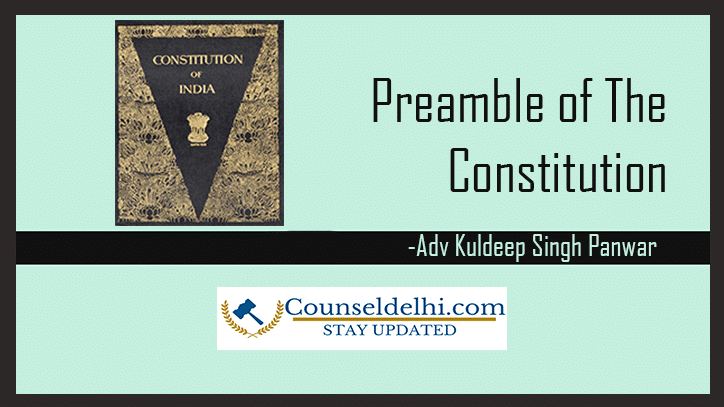To whom the Magistrate can ask for bond or surety on suspicion of breach of the peace- There are certain circumstances in which it is absolutely necessary to maintain peace. There are some individuals in the society, whose actions threaten to break the discourse within the society. From time to time, the state administration takes bonds with or without securities from such people.
The main objective of administration is to establish peace in the state and the Security is taken to establish this peace. There are many habitual criminals in the society who commit crimes repeatedly and repeating the crime.
Due to their crimes, fear arises in ordinary people of society and dangerous situations arise. Due to such circumstances, the everyday life of people in the society becomes critical and frightening. To fulfill this objective, the power of police has been incorporated under the Criminal Procedure Code 1973 in the law of India and the power has been delegated to the Executive Magistrate of the state.
The Executive Magistrate strives to maintain order in the society. The person from whom such securities are mentioned in Chapter-8 of the Criminal Procedure Code. This chapter mentions such persons from whom such securities can be obtained. The person is taking conviction; there are many criminal cases in which security is taken by the Court of Sessions Court or First Class Magistrate if proven guilty. Upon conviction of a person, the session’s court or first class magistrate takes the security and the security consists of the conditions that after conviction, no act will be done by the convict which causes dissolution.
The court may give such an order of securities for a period of less than 3 years. Special offenses are mentioned under Section 106, for which the person can seek the security of the court after the person is proved guilty. Security to maintain order in ordinary case Under Section 107 of the Code of Criminal Procedure, the Executive Magistrate is empowered that if he receives notice or complain about a person is likely to disturb the disturbances or disturb the public peace or to do any coercive act which is likely to disturb the dissolution. Or the public peace will be disturbed if, in his opinion, there is sufficient basis for taking action, and then he may order such person to execute the bond as per his discretion with or without security.
According to this section, it is necessary to have certain elements in the case to order the execution of a bond or surety on suspicion of breach of the peace with or without securities. These elements are the following:-
1) The Executive Magistrate should have information that any person will disturb the disturbances or disturb the public peace or to do such an act which is likely to disturb the disturbances or disturb the peace of the public.
2) In the opinion of the Executive Magistrate, there should be a sufficient basis to take action against the person about whom information has been received.
3) At the place where there is a possibility of disturbance of peace or disturbance of public peace should be within its local jurisdiction or the person within whose jurisdiction there is a possibility of disturbing public peace beyond the jurisdiction of that magistrate.
The suit in Rang Lal Mahato v. State of Bihar 1979, states that if a person has been ordered to execute a closed letter for a period of 1 year and a time period of 1 year has been spent in reviewing or appealing the said order. So he cannot save himself from the execution of the bond. The bond must be executed after appeal or revision.
In Ramchandra Das v. Kailash Chandra 1993, the Supreme Court decided that the action taken on the basis of investigation under Section 107 was correct, but due to the expiry of the 6-month period, special reasons are yet to be written by the Executive Magistrate were required.
In the case of Moosa Mohammed v. Amin ARI 1967 Kerala, it has been postulated that for the purpose of this section, there will be a guilty proceeding that is wrong by law. Take a bond with a person who spreads treason Under Section 108 of the Code of Criminal Procedure, a very important thing has been kept in the present scenario.
Today we get to see it in the context of political protest demonstrations or people speaking against the government. From time to time, people hurt by the policies of the government or anti-government people take part in the protest. There are many things related to treason. The Executive Magistrate is empowered that someone within his local jurisdiction is publishing something orally or in writing that is punishable under sections 124A, 153A, 153B and 295A of the Indian Penal Code.
Or defames the judiciary or sells obscene goods or makes them for sale, imports them, hires them, from any person or persons doing any such act, for executive ethics under section 108 May ask for securities Securities from suspects Under Section 109 of the Code of Criminal Procedure, the Executive Magistrate may seek securities from a suspicious person within his jurisdiction. If such a suspect is manipulating his presence or the suspect is hiding his presence with the intention of committing a cognizable offense, the Executive Magistrate is an officer under Section 109 to obtain securities from such suspect.
An old case of State v. Amul Kumar has decided that if a person hides himself to avoid arrest, then action cannot be taken under this section. Proceedings of this section shall be taken against such suspected person who is sitting in the investigation of committing a cognizable offense.
To some extent, this punishment is similar to Section 151 of the Criminal Procedure but the difference is that under this section one is arrested by the police for stopping the crime and taken securities from habitual criminals. Some people are habitual criminals who repeatedly commit a crime. It is fatal for such criminals to live independently without security in the society.
The Executive Magistrate has the power to take securities from such habitual criminals for virtue.
Bond or surety on suspicion of breach of the peace
When the Executive Magistrate comes to know of a habitual criminal who is within his local jurisdiction and who repeatedly does not commit any particular type of crime such as robbery, homicide, burglary, malfeasance, deceit, whereabouts or kidnapping of stolen property, threats, frequently involved in serious crimes like Rishti. Such criminals are habitual criminals. Under Section 110 of the Code of Criminal Procedure, the Executive Magistrate protects the society from such criminals by taking bonds with or without security for virtue. The independent variance of habitual criminals in the society proves fatal to the society. For this, security is absolutely necessary.
In the case of the State of Mysore v. Shivappa, the magistrate will take into consideration the criminal’s prior conduct and the previous acts of crime, his wicked tendencies, etc. Keeping these things in mind, the action of section 110 is taken.
In an earlier case of Gopalachari v. State of Kerala, the Madras High Court has stated that Section 110 will be granted constitutionality only when Article 21 of the Constitution is not violated. Action is taken under Section 110 of the Code of Criminal Procedure within the purview of Article 21 of the Constitution. Section 107 Under section 110, before binding a person, he is required to be given a show-cause notice by the magistrate so that he can present his explanation about the information specified in the order.
This action will not be compatible with the law without issuing a show-cause notice. When a person is arrested under Section 107 and 108, an order is given under Section 111 Criminal Procedure Code. Before giving such an order, a show-cause notice has to be issued to the court or executive magistrate issuing the order. On the basis of show cause notice, the accused presents his reasons for not giving the securities.





